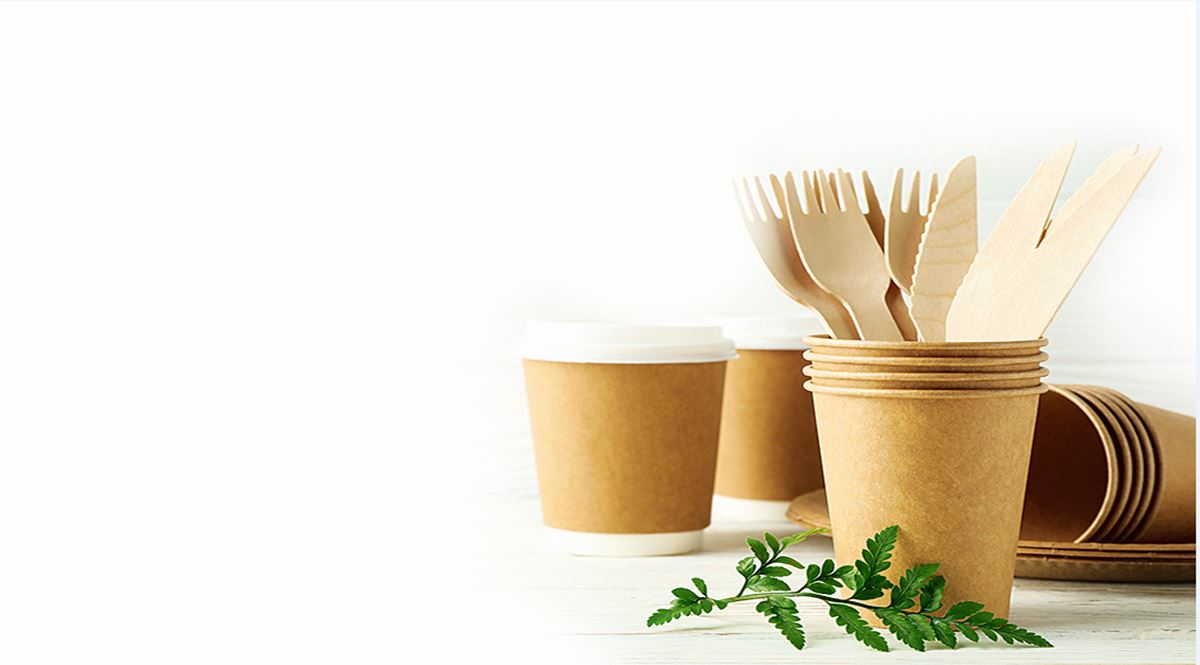
Chuk, the flagship brand of Yash Pakka Limited, one of the pioneers in the sustainable packaging industry since the past 40 years, has seen about 50% year-on-year growth in terms of revenue. Anticipating a surge in demand since the draft notification of the ban was released by the government in March 2021, production was ramped up last October and 30% additional capacity was added to the production unit in Ayodhya, Uttar Pradesh. The production in FY2020-21 was 10 tonne per day, which was increased to 14 tonne per day in FY2021-22, a 40% increase in production on a per day basis.
“Anticipating the phenomenal demand that we will be witnessing over the next few months, an increase in production capacity is in place,” said Satish Chamyvelumani, CEO & business head, Chuk.
“While the industry has grown at a rate of 30% over the past six months, we easily expect 2-3X growth in the sector over the next one year,” added Chamyvelumani.
Bengaluru-based Vaibhav Anant, founder and CEO of Bambrew, a sustainable packaging brand that makes products from bamboo and wood for Amazon and Nykaa, among others, says they have grown 40% month-on-month since 2018 and expect over $10 million revenues this financial year.
The surge in demand has been exponential for Beco, an eco-friendly home and kitchen care products brand which has seen 5x growth year-on-year as consumers have become more aware of their choices and prefer natural as well as safer products for their homes. Beco has products made from bamboo, cornstarch and plant ingredients, which make the production of the products sustainable from raw material procurement to end product. The brand has launched home cleaner liquids and plans to launch laundry detergent sheets that have zero harmful chemicals.
“Eco-friendly products, such as the bamboo-based kitchen reusable towel, are made from 100% organic bamboo extract. It is one of the most versatile materials that grows back in four months thus not affecting the environment,” said Akshay Varma, co-founder, Beco.
During the March-May period, searches for wood and bamboo dealers on search engine Just Dial jumped by 35%, with maximum demand for wood dealers. Almost 80% of the searches were for wood dealers and the rest for bamboo, reports the latest Just Dial consumer insights. The report saw demand shoot up for a wide range of wooden cutlery including spoons, knives, and forks, wooden trays, wooden stirrers, wooden ice cream spoons, and bamboo sticks.
Commenting on the trends, Prasun Kumar, chief marketing officer, Just Dial said, “Sustainability is at the core of businesses now and is bringing changes across the funnel. Just Dial has aggregated a large base of wood and bamboo dealers on the platform. Searches for wood and bamboo dealers in Tier-I cities were up by 22% and in Tier-II by 29%.”
Delhi topped the demand for wood dealers, and along with Mumbai, contributed to almost 50% of the searches among tier-I cities. Kolkata saw the maximum rise in demand at 22% for wood dealers. Delhi also topped the demand for bamboo dealers, with Mumbai and Bengaluru in the second and third place, respectively. Among Tier-II towns and cities, Chandigarh, Jaipur, Guwahati, Lucknow and Jalandhar were the top five with maximum searches for wood and bamboo dealers.
Among wood and bamboo-based products, maximum demand was for wooden spoons. Demand for wooden spoons was the highest in Mumbai and Delhi among Tier-I cities with Bengaluru in third place. Moradabad, Coimbatore, Ludhiana, Kanpur, and Lucknow were the top five Tier-II cities with maximum demand for wooden spoons. Delhi, Mumbai and Chennai generated maximum demand for bamboo sticks among Tier-I cities. Aligarh, Rajkot, Ajmer, Guwahati, and Mangalore were the top five Tier-II towns and cities with maximum demand.
However, with rising demand, input costs have also gone up significantly in the recent past, even though manufacturers have tried not to pass on the price hike to the consumer. “Prices of products have gone up by around 10%, but we are hopeful that the input costs will not go up further. There is a marginal cost difference in price of our products to those of good plastic. However, with cheaper quality plastic products, the price difference is approximately 20%,” shared Chamyvelumani of Chuk.
As per industry estimates, the cost per unit of a paper straw is 30-40 paise, while that of plastic is 10-15 paise. On the other hand, the current price of plastic polypropylene (PP) granules is Rs 115 per kg, while biodegradable polylactic acid (PLA) is Rs 425 per kg, making the alternative 400% expensive. Non-availability is also a concern. As Bhavesh Bhojani, secretary, Thermoformers & Allied Industries Association (TAIA), pointed out, “Compared to the world’s total requirement of plastics for single use, alternative manufacturing available is below 2% of the total requirement. Any new project will take a minimum two-three years time to catch up with growing requirements, making the transition from plastics to alternative biodegradable materials possible only in a phased manner.”






